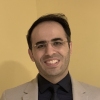On May 12, 2025, the Kurdistan Workers’ Party (PKK) announced its dissolution, following the call of its imprisoned leader, Abdullah Öcalan. The PKK declared that all activities under its name, including its military operations, have ceased. How will Kurds now struggle for their rights and a Kurdish homeland?
The PKK’s decision comes as Turkish military operations continue in both Iraqi Kurdistan and Kurdish regions in Syria. Yet, the PKK congress stated that it has fulfilled its mission, bringing “the Kurdish question to a stage [so] that [it] can be resolved through democratic politics.” It said it aimed for a “democratic society” based on a “common homeland and equal citizenship” between Kurds and Turks.
[The PKK congress] said it aimed for a “democratic society” based on a “common homeland and equal citizenship” between Kurds and Turks.
The congress cited “current developments in the Middle East” and alluded to the fall of the Syrian regime and Israel’s success in rolling back Iranian proxies as reasons to reassess Kurdish-Turkish relations. Ending armed struggle, the PKK congress argued, “provides a strong basis for lasting peace and a democratic solution.” But it also emphasized that a lasting peace requires Turkey to agree to the “recognition of the right to democratic politics and the provision of comprehensive legal guarantees.”
This moment marks a shift that has implications far beyond Turkey’s borders and raises the question: Why now? In 1993, President Turgut Özal attempted a peaceful resolution with the PKK amid a push for European Union membership, but he died suddenly of an alleged heart attack before he could bring any peace process to fruition. What has changed now for the Turkish deep state to allow another attempt?
Clearly, prolonged conflict benefits some within Turkey’s security and political structures. The end of hostilities could diminish the power and prestige of parts of the military and bureaucratic elite. Decades of nationalist indoctrination in media, schools, and official history have embedded anti-Kurdish sentiment deep in the Turkish psyche. Reversing this legacy will be neither quick nor easy.
The PKK’s fighters include Kurds who are citizens of Iran, Iraq, Syria, and Turkey. What will become of them? Will Iranian citizens among them join PKK-offshoot Kurdistan Free Life Party (PJAK) or other Kurdish opposition parties and continue fighting the regime in Tehran? Will PKK members who hold Turkish citizenship be given the choice to be absorbed into the Turkish military, or will they remain excluded? Could they even be used to suppress fellow Kurds in Syria and Iraq?
If the PKK is no longer active, will Turkey end its occupation and ethnic cleansing of Kurdish territories in Syria and Iraq?
Turkey has used the pretext of fighting the PKK to expand its military presence in the Iraqi Kurdistan Region and launch incursions into Kurdish-controlled areas of Syria since 2018. These operations have killed many civilians and journalists. If the PKK is no longer active, will Turkey end its occupation and ethnic cleansing of Kurdish territories in Syria and Iraq? That seems unlikely; Turkey has used “counterterrorism” as a cover for its expansionist policies. Kurdish regions—especially in Turkey—have suffered decades of harsh repression: political denial, cultural erasure, torture, hunger strikes, and mass imprisonment. Thousands have died. Will the Turkish state acknowledge their own crimes? Will Ankara offer reparations or truth and reconciliation?
The PKK has evolved over the years from its Cold War Marxist-Leninist roots to a push for “democratic confederalism” that eschewed separatism. The PKK was unapologetically progressive. Could its disbandment create space for illiberal and anti-Western movements to thrive, especially since some Kurds now view Western democracies as ineffective or “hypocritical” in addressing Kurdish rights?
Ankara hopes that the PKK’s disbandment will reshape the Kurdish struggle within Turkey, but Turkish President Recep Tayyip Erdoğan likely views PKK disbandment as an opportunity to curb regional transformation and reinforce his anti-Israel posture. If global and regional powers accept such shifts, they are effectively consenting to a transformation in the region that could have regional and global consequences, many of which will be detrimental not only to Kurdish aspirations but also for Western liberalism and progressive values.








